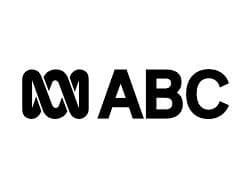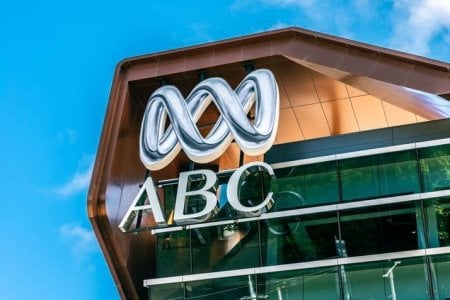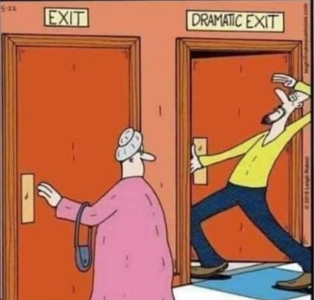Public outrage as ABC staff plan a strike after being offered a $1,500 bonus and 10.5% pay rise
- Replies 18
Hundreds of staff at the Australian Broadcasting Corporation (ABC) are planning to hold a strike for 40 minutes at 2 pm next Tuesday – marking this as their first protected industrial action in 17 years.
This comes after they rejected their taxpayer-funded offer of a 10.5 per cent pay rise over three years with a $1,500 one-off payment.
The strike is the first step in a campaign of rolling action to improve pay and conditions. It also has a set time to make it difficult to cover a key news story that day – the Reserve Bank Australia (RBA) board meeting and official cash rate announcement are set to be published on 7 March.
According to reports, if no better deal is offered then more action is likely, up to and including a 24-hour strike.
ABC Managing Director David Anderson was pulled into negotiations after employees rejected the most recent pay offer. The Media, Entertainment, and Arts Alliance (MEAA) union members (some 1,000 members) ticked all options of industrial action.
‘Members are resolute that management needs to improve its offer to avoid disruptive industrial action over coming weeks,’ the union’s spokesperson shared.
According to reports, the offer was rejected because it ‘failed to address key demands around gender and racial equity, as well as an acceptable wage rise’. The pay rise offer was also emailed to staff without prior notice to the media union, sources claimed.
During that time, a spokesperson for MEAA said ABC Chair Ita Buttrose and Mr Anderson were called on to ensure that the negotiations were done in ‘good faith’ after staff alleged that the latest offer still ignored requests for ‘an audit of female and culturally diverse representation’.
‘It’s not really about [the] pay any more. People feel really strongly about these issues,’ the spokesperson stated.
In November last year, 72.8 per cent of ABC staff members (around 3,900 employees) voted against a management offer that workers described as ‘insulting’. The proposed three-year agreement contained nominal wage increases of 3 per cent per annum – far short of the rapidly rising cost of living.
After that, the revised offer came in. The new proposal contained a 4 per cent increase in the first year, 3.5 per cent in the second, and a 3 per cent in the third, as well as a one-off payment of $1,500 would be given to workers.
However, this would allegedly still leave ABC staff well behind inflation rates. Based on reports, this also did not address their concerns around workload, overtime rates, and rostering.
This brings us to today, where MEAA members are calling for a 6 per cent annual pay rise. MEAA Media Director Cassie Derrick acknowledged that a figure that matches the current inflation rate is impossible.
‘The reality is that inflation is 7.8 per cent. The ABC is not going to pay that. Our claim is below inflation. It’s a pay cut after a decade of spreading people thinner and thinner.’
The national broadcaster receives more than $1 billion in government funding every year.
Allegedly, ABC staff members have worked through years of stagnant or declining wages, wage theft, and multiple underpayment scandals. The ABC previously admitted that they had underpaid hundreds of workers who elected to waive overtime, penalty rates, and other entitlements in exchange for a higher base rate.
Community and Public Sector Union ABC Director Sinndy Ealy said the strike was a last resort, but ‘if the employer continues to treat [staff] in this manner they’re leaving the workforce with little choice’.
She added that the $1,500 payment was a ‘sweetener’ in the deal and would help with a few bills, but still short of addressing the increasing cost of living. ‘ABC staff are not fools,’ she stated.
A spokesperson for the company denied allegations that ABC was offering ‘less’ to their staff.
‘The ABC’s initial proposal was for a three-year agreement expiring in October 2025, with a one-off payment of $750 and pay increases of 3.5 per cent, 3 per cent and 2.5 per cent,’ they shared.
The spokesperson also revealed that the newest proposal was a three-year agreement that would expire in March 2026. It offered higher pay increases during the life of the agreement, which they claimed would result in higher base salaries.
‘This has been carefully calibrated with regard to the ABC’s fixed funding envelope,’ they explained.
Regular broadcasts could also be replaced by pre-recorded material if television and radio staff also walk off the job next Tuesday – sparking outrage from leading commentators across the country.
2GB host Ben Fordham slammed the 40-minute strike and called it ‘lazy’, and issued an offer to Ms Buttrose to volunteer his services during the industrial action.
’40 minutes? Even their strikes are lazy! I will go live on the ABC for 40 minutes if Ita Buttrose agrees. I could do it across radio, television, and all of your other media assets,’ he said.
Columnist Andrew Bolt also slammed the strike and branded the ABC staff as ‘entitled’.
‘I hope the ABC's bosses have the guts to put up their feet, order in the popcorn, and watch their staff prove to Australia that we really can do without them,’ he stated.
He added: ‘'For one, the ABC audience would have a refreshing opportunity to break out of the ABC bubble and get their news from somewhere else.’
Taxpayers also expressed their anger over the strike.
‘Let the ABC strike indefinitely and then sack the lot of them. We would save a lot of taxpayers’ money and lose absolutely nothing,’ one declared.
The last time ABC employees went on strike was in 2006 when members of the Community and Public Sector Union and MEAA walked off for 24 hours over a pay offer. At the time, the strike caused disruptions to TV and radio services.
 What do you think about the ABC staff planned strike? Share your thoughts in the comments section – we’d love to hear from you!
What do you think about the ABC staff planned strike? Share your thoughts in the comments section – we’d love to hear from you!
This comes after they rejected their taxpayer-funded offer of a 10.5 per cent pay rise over three years with a $1,500 one-off payment.
The strike is the first step in a campaign of rolling action to improve pay and conditions. It also has a set time to make it difficult to cover a key news story that day – the Reserve Bank Australia (RBA) board meeting and official cash rate announcement are set to be published on 7 March.
According to reports, if no better deal is offered then more action is likely, up to and including a 24-hour strike.
ABC Managing Director David Anderson was pulled into negotiations after employees rejected the most recent pay offer. The Media, Entertainment, and Arts Alliance (MEAA) union members (some 1,000 members) ticked all options of industrial action.
‘Members are resolute that management needs to improve its offer to avoid disruptive industrial action over coming weeks,’ the union’s spokesperson shared.
According to reports, the offer was rejected because it ‘failed to address key demands around gender and racial equity, as well as an acceptable wage rise’. The pay rise offer was also emailed to staff without prior notice to the media union, sources claimed.
During that time, a spokesperson for MEAA said ABC Chair Ita Buttrose and Mr Anderson were called on to ensure that the negotiations were done in ‘good faith’ after staff alleged that the latest offer still ignored requests for ‘an audit of female and culturally diverse representation’.
‘It’s not really about [the] pay any more. People feel really strongly about these issues,’ the spokesperson stated.
In November last year, 72.8 per cent of ABC staff members (around 3,900 employees) voted against a management offer that workers described as ‘insulting’. The proposed three-year agreement contained nominal wage increases of 3 per cent per annum – far short of the rapidly rising cost of living.
After that, the revised offer came in. The new proposal contained a 4 per cent increase in the first year, 3.5 per cent in the second, and a 3 per cent in the third, as well as a one-off payment of $1,500 would be given to workers.
However, this would allegedly still leave ABC staff well behind inflation rates. Based on reports, this also did not address their concerns around workload, overtime rates, and rostering.
This brings us to today, where MEAA members are calling for a 6 per cent annual pay rise. MEAA Media Director Cassie Derrick acknowledged that a figure that matches the current inflation rate is impossible.
‘The reality is that inflation is 7.8 per cent. The ABC is not going to pay that. Our claim is below inflation. It’s a pay cut after a decade of spreading people thinner and thinner.’
The national broadcaster receives more than $1 billion in government funding every year.
Allegedly, ABC staff members have worked through years of stagnant or declining wages, wage theft, and multiple underpayment scandals. The ABC previously admitted that they had underpaid hundreds of workers who elected to waive overtime, penalty rates, and other entitlements in exchange for a higher base rate.
Community and Public Sector Union ABC Director Sinndy Ealy said the strike was a last resort, but ‘if the employer continues to treat [staff] in this manner they’re leaving the workforce with little choice’.
She added that the $1,500 payment was a ‘sweetener’ in the deal and would help with a few bills, but still short of addressing the increasing cost of living. ‘ABC staff are not fools,’ she stated.
A spokesperson for the company denied allegations that ABC was offering ‘less’ to their staff.
‘The ABC’s initial proposal was for a three-year agreement expiring in October 2025, with a one-off payment of $750 and pay increases of 3.5 per cent, 3 per cent and 2.5 per cent,’ they shared.
The spokesperson also revealed that the newest proposal was a three-year agreement that would expire in March 2026. It offered higher pay increases during the life of the agreement, which they claimed would result in higher base salaries.
‘This has been carefully calibrated with regard to the ABC’s fixed funding envelope,’ they explained.
Regular broadcasts could also be replaced by pre-recorded material if television and radio staff also walk off the job next Tuesday – sparking outrage from leading commentators across the country.
2GB host Ben Fordham slammed the 40-minute strike and called it ‘lazy’, and issued an offer to Ms Buttrose to volunteer his services during the industrial action.
’40 minutes? Even their strikes are lazy! I will go live on the ABC for 40 minutes if Ita Buttrose agrees. I could do it across radio, television, and all of your other media assets,’ he said.
Columnist Andrew Bolt also slammed the strike and branded the ABC staff as ‘entitled’.
‘I hope the ABC's bosses have the guts to put up their feet, order in the popcorn, and watch their staff prove to Australia that we really can do without them,’ he stated.
He added: ‘'For one, the ABC audience would have a refreshing opportunity to break out of the ABC bubble and get their news from somewhere else.’
Taxpayers also expressed their anger over the strike.
‘Let the ABC strike indefinitely and then sack the lot of them. We would save a lot of taxpayers’ money and lose absolutely nothing,’ one declared.
The last time ABC employees went on strike was in 2006 when members of the Community and Public Sector Union and MEAA walked off for 24 hours over a pay offer. At the time, the strike caused disruptions to TV and radio services.
Key Takeaways
- ABC staff are planning to walk off the job for the first time in 17 years in protest of the management’s current pay offer.
- Union members have outlined a number of concerns such as salary discrepancies and career progression for their demand for improved pay.
- The ABC said their new offer provides pay increases over three years and a one-off payment of $1,500 to help with current bills.










